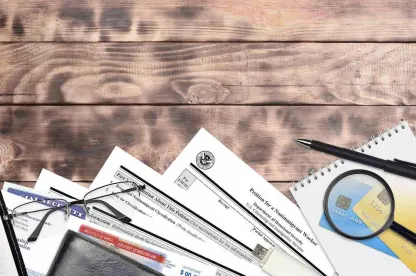The following is a summary of the President’s three new immigration-related executive orders issued on February 2, 2021:
Executive Order on the Establishment of Interagency Task Force on the Reunification of Families
The first executive order creates an interagency task force, presided by the Secretary of Homeland Security, to reunify parents and children separated by the prior administration. The action also revokes the Trump administration’s executive order that sought to justify separating children from their parents and describes that administration’s former “Zero Tolerance” policy, by which it separated families at the U.S. -Mexico border, as a “human tragedy.”
The second executive order seeks to develop a strategy to address the root causes of cross-border migration and establish a more humane U.S. asylum system. It also directs the Department of Homeland Security (DHS) to take steps to end the previous administration’s “Migrant Protection Protocols program” (or the “remain in Mexico policy”), which, according to the language of the Executive Order, had led to a humanitarian crisis at our border with Mexico.
The third executive order directs the Secretary of State, the Attorney General, and the Secretary of Homeland Security to review existing immigration regulations, orders, guidance documents, policies, and any related agency actions that may be inconsistent with the Biden administration’s strategies of promoting integration, inclusion, and citizenship. In conducting this review, federal agencies will identify barriers that impede access to immigration benefits and adjudication of these benefits in a fair and efficient manner. Within 90 days of the date of this order, agencies will submit a plan to the President describing steps and recommendations on how to remove these barriers.
The directive specifically instructs federal agencies to review the U.S. Citizenship and Immigration Services Fee Schedule and Changes to Certain Other Immigration Benefit Request Requirements (the “USCIS Fee Rule” which is currently subject to federal injunctions and not being enforced), policies related to public charge grounds for inadmissibility, including the DHS Public Charge Rule, the naturalization process, and related policies.
The order instructs agencies to present reports and plans on the following topics within the next 60 to 180 days:
-
Implications of the continued implementation in light of the public charge policies;
-
Actions to address concerns about the current public charge policies’ effect on the integrity of the Nation’s immigration system and public health, including recommendations for revising or rescinding the USCIS Fee Rule;
-
Changes to current public charge policies in order to reduce fear and confusion among impacted communities; and
-
Plan to review, improve, and streamline the current naturalization process.
It should be noted, this Executive Order does not change the current requirement for those in the final stage of the green card process, filing Form I-485, Adjustment of Status applications, to file Form I-944, Declaration of Self-Sufficiency as required by the Public Charge Rule. While the previous Administration’s Public Charge Rule is subject to a federal preliminary injunction, the mandate to implement the injunction was stayed by Ninth Circuit Court of Appeals while challenges in other Circuits and a writ of certiorari to the US Supreme Court work their way through federal courts. Unless the federal courts declare the Public Charge Rule invalid, it can only be rescinded through the months-long rulemaking process, not through a Presidential executive action.
DHS Delays Implementation of the Rule that Ends the H-1B Cap Random Lottery
Today, USCIS announced that it has delayed the effective date of its recent H-1B Selection final rule (aka “H-1B weighted lottery rule”) from March 9, 2021 to December 31, 2021, leaving this year’s H-1B Cap lottery untouched. The rule, which we covered in a prior blog post HERE and if left intact, will change the current random lottery to a weighted lottery that provides preference for H-1B jobs classified in the higher of the four Department of Labor wage levels.
USCIS stated that the delay was implemented “to develop, test, and implement the modifications to the H-1B registration system and selection process” and to “provide more time for USCIS to train staff and perform public outreach as well as give stakeholders time to adjust to the new rule.” It is possible that the rule will be altered or withdrawn prior to December 31, 2021, but the delay means that this year’s H-1B Cap lottery, scheduled for mid-March, is expected to proceed using the same random lottery system as last year. Within the next days, USCIS is expected to formally announce the start and end dates for the FY 22 H-1B Cap registration period.
What’s Next?
During the coming weeks, we expect to see additional executive action to replace or modify the previous administration’s Proclamations Suspending Entry of Immigrants and Nonimmigrants Who Present Risk to the U.S. Labor Market During the Economic Recovery Following the COVID-19 Outbreak. These Presidential Proclamations, 10014 and 10052, currently pause issuance of visas and entry for visa holders across many categories of immigrant visas (green cards applied for outside the U.S.) and nonimmigrant visas (temporary work and training visas). They are subject to a limited federal preliminary injunction that only benefits employers who won a court case against the Trump administration, and set to expire on March 31, 2021.




 />i
/>i

